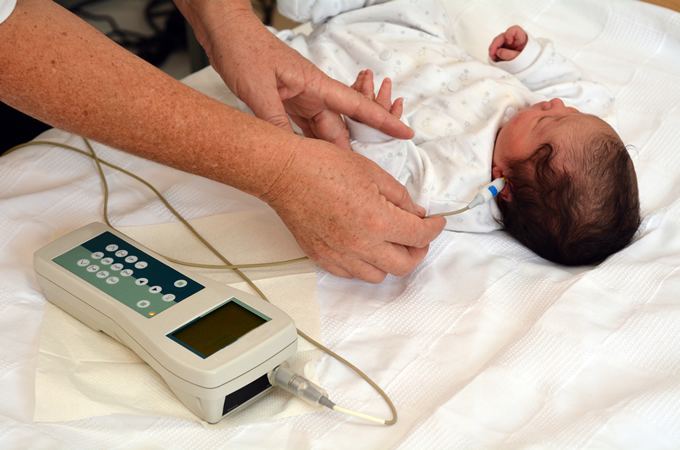
Hearing Tests in Newborns
Most babies have normal hearing, although a small percentage of newborns have some degree of hearing loss after birth. Since newborns aren't able to verbalize, such tests are important to detect possible hearing issues at a time when early intervention is possible. Nearly half of all younger patients with hearing loss have no prior risk factors (e.g., family history of hearing loss) before hearing loss is diagnosed.
Why Newborns Need Hearing Tests
One of the most common congenital anomalies (conditions present upon birth) in newborns is hearing loss, which can also be caused by other issues such as genetic abnormalities, ear fluid, and conditions like virus infections during pregnancy. Hearing tests are important in newborns because hearing is one of the way babies learn. Issues with hearing in babies may contribute to:
- Trouble with speech
- Difficulties with language development
- Slowed learning development
What Hearing Tests Are Performed on Newborns?
There are two standard hearing tests typically performed on newborns. The first is an automated auditory brainstem response (ABR) test. During the test, soft earphones are placed on the baby's ear. Tones or clicks are produced to determine how the hearing nerve reacts to these sounds. Electrodes are also placed on the head of the newborn to detect how the nerve is responding.
The other hearing screening commonly performed on newborns is an otoacoustic emissions (OAE) test. Sound waves generated from within a baby's inner ear are measured with a probe positioned into the ear canal. Specifically, the test measures the echoes produced by the sounds delivered into each ear canal.
ABR and OAE tests only take about 5-10 minutes to perform. Both tests are painless and often performed while the newborn is calm and relaxed or sleeping.
What if Newborns Fail One or Both Tests?
Failing one or both hearing tests doesn't automatically mean a baby has hearing loss. Further testing is usually done to determine if there are additional signs of a hearing problem. It's recommended to that such tests take place before a baby is three months old to minimize the risk of developmental issues. If hearing loss is confirmed, steps taken may include:
- Ongoing evaluation by an ear/nose/throat doctor (otolaryngologist)
- Educating parents on how to communicate with their baby
- Hearing aids
- Surgery to repair the hearing loss or to place a cochlear implant
- Speech and language therapy
The American Academy of Pediatrics (AAP) recommends that newborns have a hearing test shortly after birth before going home from the hospital, although universal newborn screening is already a common practice in U.S. hospitals. The American Academy of Audiology recommends that screenings for permanent hearing loss continue for children 3-5 years of age since some screenings cannot be used reliably on children under the age of three.

